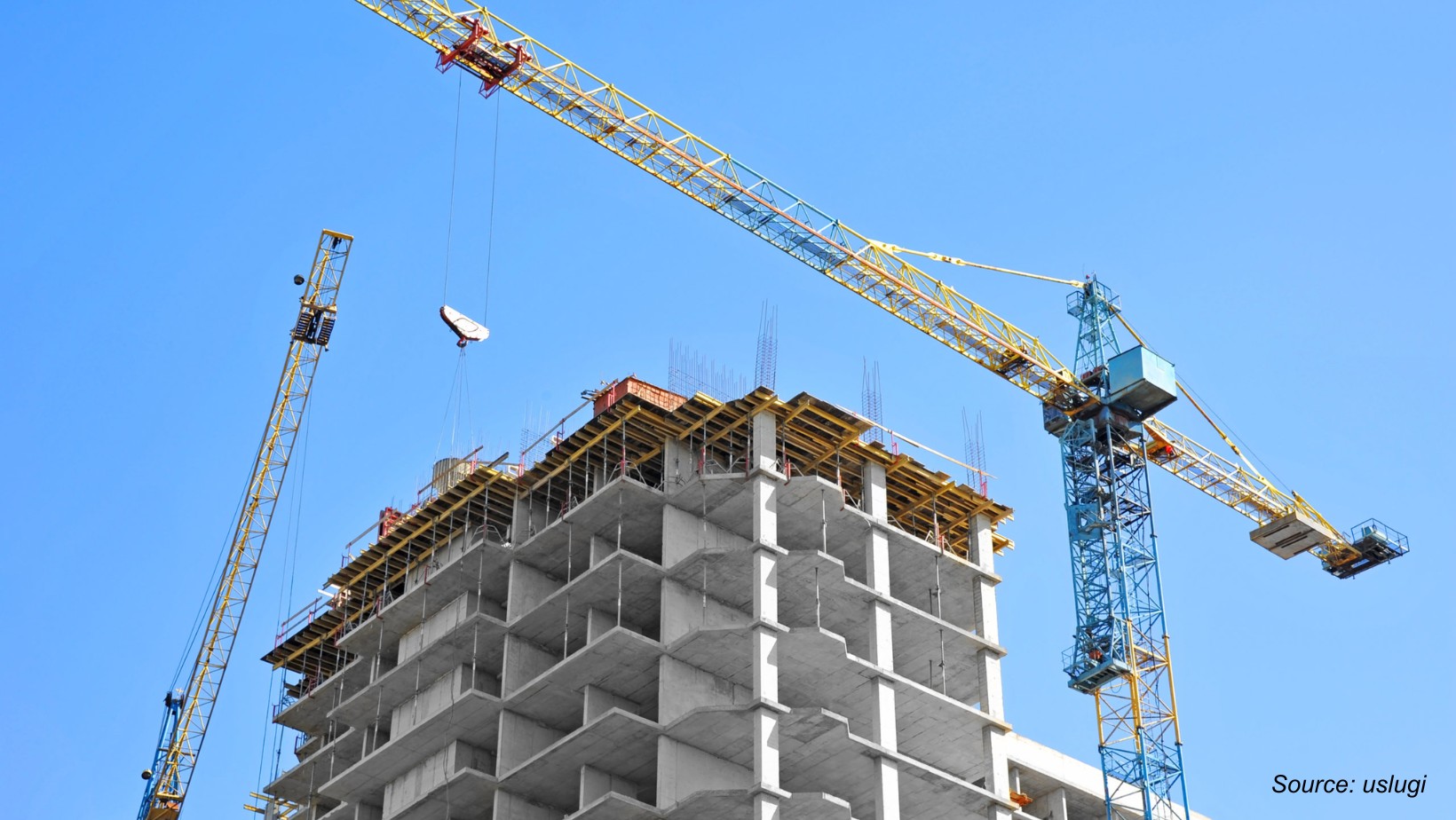
Japan Real Estate Market by Property Size (Small (<500 sq. ft.), Medium (500–2000 sq. ft.), Large (2000+ sq. ft.)), by Property Type (Residential, Commercial, Land, Industrial), by Business Type (Buying, Selling, Leasing, Renting and Real Estate Investment), by Ownership (Owner-Occupied Properties, Rental Properties, Co-ownership), and Others – Opportunity Analysis and Industry Forecast, 2025–2030
Industry: Construction & Manufacturing | Publish Date: 08-Jul-2025 | No of Pages: 139 | No. of Tables: 144 | No. of Figures: 89 | Format: PDF | Report Code : CM1209
Market Definition
The Japan Real Estate Market size was valued at USD 509.3 million in 2023, and is predicted to reach USD 707.1 million by 2030, at a CAGR of 4.8% from 2024 to 2030.
The real estate industry constitutes a multifaceted market involving the acquisition, development, and management of residential and commercial properties. This expansive sector includes residential real estate, catering to individuals and families, as well as commercial and industrial real estate, focused on business operations and manufacturing. Real estate development involves the creation and enhancement of properties, while real estate investment encompasses acquiring properties for financial gain.
Additionally, a range of professional services, such as those provided by real estate agents and property managers, contributes to the industry's dynamics. Influenced by economic trends, demographic shifts, and regulatory factors, the real estate market is a complex landscape where various stakeholders engage in activities that shape urban environments, support economic growth, and provide investment opportunities.
Increasing Need for Remote Work Is Propelling Market Growth in Japan
The growing prevalence of remote and hybrid work models across Japan has significantly influenced residential real estate trends. As work-from-home becomes a lasting norm, homebuyers and renters are prioritizing spacious layouts, dedicated home office areas, and properties in suburban or semi-rural locations that offer better living conditions over proximity to city-center workplaces. This shift has sparked demand in satellite cities surrounding major hubs like Tokyo, Osaka, and Fukuoka.
Simultaneously, the adoption of smart home technologies—such as voice-controlled automation, energy-saving systems, and remote security monitoring—has become a key differentiator in the housing market. These features not only enhance day-to-day convenience but also add value and appeal to modern homebuyers seeking tech-integrated living spaces.
Rising Integration of Online Property Platforms Drives Market Growth in Japan
Digital transformation is reshaping Japan’s real estate ecosystem, with online property platforms playing a central role in how buyers, renters, and investors engage with the market. These platforms provide comprehensive listings, virtual tours, AI-based recommendation engines, and real-time market analytics, enabling users to make informed decisions from anywhere, at any time.
Japanese consumers increasingly rely on these platforms to compare prices, assess amenities, and visualize properties without physical visits. Enhanced by features such as personalized alerts, saved search functionality, and secure messaging between parties, these digital tools are streamlining transactions and expanding access to real estate across diverse geographies. For developers and agents, these platforms offer valuable data-driven insights into consumer behavior, pricing trends, and emerging demand clusters, further professionalizing the industry.
Government Policies and Economic Factors Hinder Market Growth in Japan
In Japan, the growth of the real estate sector is increasingly influenced by a combination of regulatory challenges and economic uncertainties. Government policies related to property taxation, land-use zoning, and redevelopment approvals can create barriers for developers, particularly in urban areas where space is limited and regulations are stringent. Complex building codes, environmental compliance requirements, and lengthy permitting processes also contribute to project delays and higher operational costs.
On the economic front, factors such as sluggish wage growth, deflationary pressures, and concerns over long-term demographic decline continue to impact investor sentiment and housing demand. Additionally, global market volatility and uncertainty about interest rate policy shifts—even in a historically low-rate environment—further complicate investment planning. These structural and macroeconomic issues necessitate adaptive strategies and risk mitigation, as they play a critical role in shaping real estate values, development timelines, and the overall pace of market expansion.
Rising Smart City and Sustainable Development Projects in Japan Create Ample Market Opportunities
Japan’s commitment to smart city initiatives and sustainable urban development is unlocking significant opportunities for growth in the real estate sector. With government-backed projects underway in cities like Tokyo, Yokohama, Kashiwa-no-ha, and Fukuoka, there is a strong focus on integrating green infrastructure, digital connectivity, renewable energy systems, and intelligent mobility solutions. These efforts aim to enhance urban livability while addressing climate resilience and resource efficiency.
As municipalities work to modernize infrastructure and improve energy performance, real estate developers are increasingly engaged in building eco-friendly, tech-enabled properties that align with national carbon neutrality goals. The demand for sustainable housing, smart commercial buildings, and mixed-use developments is rising—offering developers and investors long-term value in a market that is rapidly aligning with global ESG (Environmental, Social, and Governance) priorities. This evolution positions Japan as a leader in urban innovation, creating robust prospects for real estate across both established cities and emerging regional hubs.
Competitive Landscape
The market players operating in the Japan real estate market include Mitsui Fudosan, Mitsubishi Estate, Sumitomo Realty & Development, Daiwa House Industry, Tokyu Fudosan Holdings, Nomura Real Estate Holdings, Tokyo Tatemono, Hulic, Mori Trust, Sekisui House, Open House, Daibiru, Daito Trust Construction, AEON Mall, and Sumitomo Fudosan Step.
Japan Real Estate Market Key Segments
By Property Size
-
Small (<500 sq. ft.)
-
Medium (500–2000 sq. ft.)
-
Large (2000+ sq. ft.)
By Property Type
-
Residential
-
Apartments/Flats
-
Single-Family Homes
-
Multi-Family Homes
-
Condominiums
-
Townhouses
-
Vacation Homes
-
-
Commercial
-
Office Spaces
-
Retail Spaces
-
Co-working Spaces
-
Warehouses
-
-
Land
-
Urban Plots
-
Suburban/Rural Plots
-
-
Industrial
-
Manufacturing Plants
-
Distribution Centers
-
Data Centers
-
By Business Type
-
Buying
-
Selling
-
Leasing
-
Renting
-
Real Estate Investment
-
Direct Property Investment
-
Real Estate Investment Trusts (REITs)
-
By Ownership
-
Owner-Occupied Properties
-
Rental Properties
-
Co-ownership
By Property Value
-
Affordable Housing
-
Luxury Housing
-
Ultra-Luxury Housing
By End User
-
Individual Buyers
-
First-time Homebuyers
-
Repeat Buyers
-
Luxury Buyers
-
Seniors/Retirees
-
-
Business Entities
-
Startups
-
SMEs
-
Large Corporations
-
-
Government
-
Civic Projects
-
Affordable Housing Initiatives
-
-
Institutional Investors
Key Players
-
Mitsui Fudosan
-
Mitsubishi Estate
-
Sumitomo Realty & Development
-
Daiwa House Industry
-
Tokyu Fudosan Holdings
-
Nomura Real Estate Holdings
-
Tokyo Tatemono
-
Hulic
-
Mori Trust
-
Sekisui House
-
Open House
-
Daibiru
-
Daito Trust Construction
-
AEON Mall
-
Sumitomo Fudosan Step
REPORT SCOPE AND SEGMENTATION:
|
Parameters |
Details |
|
Market Size in 2023 |
USD 509.3 million |
|
Revenue Forecast in 2030 |
USD 707.1 million |
|
Growth Rate |
CAGR of 4.8% from 2024 to 2030 |
|
Analysis Period |
2023–2030 |
|
Base Year Considered |
2023 |
|
Forecast Period |
2024–2030 |
|
Market Size Estimation |
Million (USD) |
|
Growth Factors |
|
|
Companies Profiled |
15 |
|
Market Share |
Available for 10 companies |
|
Customization Scope |
Free customization (equivalent up to 80 working hours of analysts) after purchase. Addition or alteration to country, regional, and segment scope. |
|
Pricing and Purchase Options |
Avail customized purchase options to meet your exact research needs. |




















 Speak to Our Analyst
Speak to Our Analyst

























